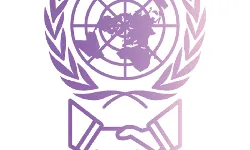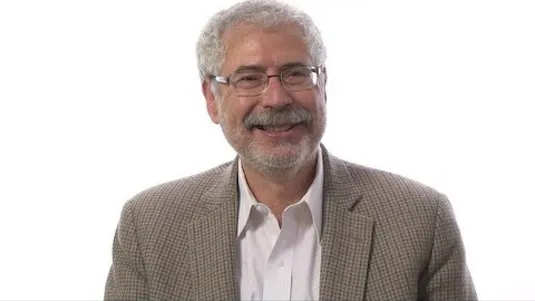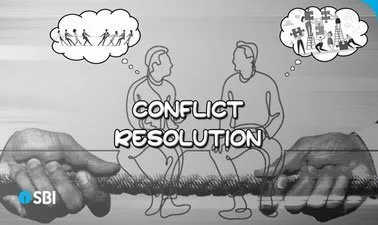
United Nations and Conflict Resolution 
This course explores the United Nations' role in conflict resolution, from its formation to its most recent involvements in the former Yugoslavia, Afghanistan, Libya, and the Middle East. It examines the evolution of UN principles and policies in post-Soviet space. ▼
ADVERTISEMENT
Course Feature
![]() Cost:
Cost:
Free
![]() Provider:
Provider:
Coursera
![]() Certificate:
Certificate:
Paid Certification
![]() Language:
Language:
English
![]() Start Date:
Start Date:
21st Mar, 2022
Course Overview
❗The content presented here is sourced directly from Coursera platform. For comprehensive course details, including enrollment information, simply click on the 'Go to class' link on our website.
Updated in [March 06th, 2023]
This course, United Nations and Conflict Resolution, examines and explains the theory and practice of the United Nations Organizations activities and operations in modern conflicts. It provides an overview of the evolution of principles of the UN conflict resolution since its formation till its involvements in the former Yugoslavia, Afghanistan, Libya, Middle East, and UN policies towards conflicts in post-Soviet space.
The course is richly illustrated with statistics, maps, images and videos of conflicts and wars, peacekeeping and peace enforcement operations. It also presents modern conflict resolution practices as a mix of achievements and failures of the international community involving knots of contradictions among great powers, and with growing role of non-state actors.
The course is structured in four lectures. It provides an in-depth understanding of the UN's role in conflict resolution and its implications for the international community.
[Applications]
The application of this course can be seen in the understanding of the United Nations' role in conflict resolution. It provides an overview of the evolution of the UN's principles of conflict resolution, from its formation to its involvement in modern conflicts. It also provides an understanding of the complexities of modern conflict resolution, including the role of great powers and non-state actors. Finally, the course provides an understanding of the successes and failures of the international community in conflict resolution.
[Career Paths]
1. Diplomatic Negotiator: Diplomatic negotiators are responsible for representing their country or organization in international negotiations. They must be knowledgeable in international law, politics, and economics, and be able to effectively communicate and negotiate with other parties. Diplomatic negotiators must also be able to analyze and interpret complex data and information, and develop strategies to resolve conflicts. As the world becomes increasingly interconnected, the demand for diplomatic negotiators is expected to grow.
2. International Lawyer: International lawyers specialize in the laws and regulations that govern international relations. They must be knowledgeable in international law, politics, and economics, and be able to effectively communicate and negotiate with other parties. International lawyers must also be able to analyze and interpret complex data and information, and develop strategies to resolve conflicts. As the world becomes increasingly interconnected, the demand for international lawyers is expected to grow.
3. Humanitarian Aid Worker: Humanitarian aid workers provide assistance to people affected by natural disasters, armed conflicts, and other crises. They must be knowledgeable in international law, politics, and economics, and be able to effectively communicate and negotiate with other parties. Humanitarian aid workers must also be able to analyze and interpret complex data and information, and develop strategies to resolve conflicts. As the world becomes increasingly interconnected, the demand for humanitarian aid workers is expected to grow.
4. Conflict Resolution Specialist: Conflict resolution specialists are responsible for resolving conflicts between individuals, groups, and nations. They must be knowledgeable in international law, politics, and economics, and be able to effectively communicate and negotiate with other parties. Conflict resolution specialists must also be able to analyze and interpret complex data and information, and develop strategies to resolve conflicts. As the world becomes increasingly interconnected, the demand for conflict resolution specialists is expected to grow.
[Education Paths]
1. Bachelor of Arts in International Relations: A Bachelor of Arts in International Relations is a degree program that focuses on the study of global politics, economics, and culture. This degree program provides students with an understanding of the complexities of international relations and the ability to analyze and interpret global events. Students will learn about the history of international relations, the role of international organizations, and the impact of international law. This degree program is ideal for those interested in pursuing a career in international affairs, diplomacy, or government.
2. Master of Science in Conflict Resolution: A Master of Science in Conflict Resolution is a degree program that focuses on the study of conflict resolution and peacebuilding. This degree program provides students with an understanding of the causes of conflict, the dynamics of conflict, and the strategies for resolving conflicts. Students will learn about the history of conflict resolution, the role of international organizations, and the impact of international law. This degree program is ideal for those interested in pursuing a career in international affairs, diplomacy, or government.
3. Doctor of Philosophy in International Relations: A Doctor of Philosophy in International Relations is a degree program that focuses on the study of global politics, economics, and culture. This degree program provides students with an understanding of the complexities of international relations and the ability to analyze and interpret global events. Students will learn about the history of international relations, the role of international organizations, and the impact of international law. This degree program is ideal for those interested in pursuing a career in international affairs, diplomacy, or government.
4. Master of Arts in Peace and Conflict Studies: A Master of Arts in Peace and Conflict Studies is a degree program that focuses on the study of conflict resolution and peacebuilding. This degree program provides students with an understanding of the causes of conflict, the dynamics of conflict, and the strategies for resolving conflicts. Students will learn about the history of conflict resolution, the role of international organizations, and the impact of international law. This degree program is ideal for those interested in pursuing a career in international affairs, diplomacy, or government.
Course Provider

Provider Coursera's Stats at AZClass
United Nations and Conflict Resolution examines the United Nations' role in conflict resolutions, from its founding to its recent involvement in conflicts in the former Yugoslavia, Afghanistan, Libya and the Middle East. It examines the evolution of United Nations principles and policies in the post-Soviet era. Participants can use this course to learn about the United Nations and its role in conflict resolution. They can learn about the evolution of the UN's principles of conflict resolution since its founding, and explore the UN's policies to respond to conflict in the post-Soviet era. Learners also gain insight into the successes and failures of the international community in conflict resolution, and the role of non-state actors.
Discussion and Reviews
0.0 (Based on 0 reviews)
Explore Similar Online Courses

How to Build a Startup

Introduction to Ableton Live

Python for Informatics: Exploring Information

Social Network Analysis

Introduction to Systematic Review and Meta-Analysis

The Analytics Edge

DCO042 - Python For Informatics

Causal Diagrams: Draw Your Assumptions Before Your Conclusions

Whole genome sequencing of bacterial genomes - tools and applications

Introduction to Conflict Management

Conflict Resolution


Start your review of United Nations and Conflict Resolution